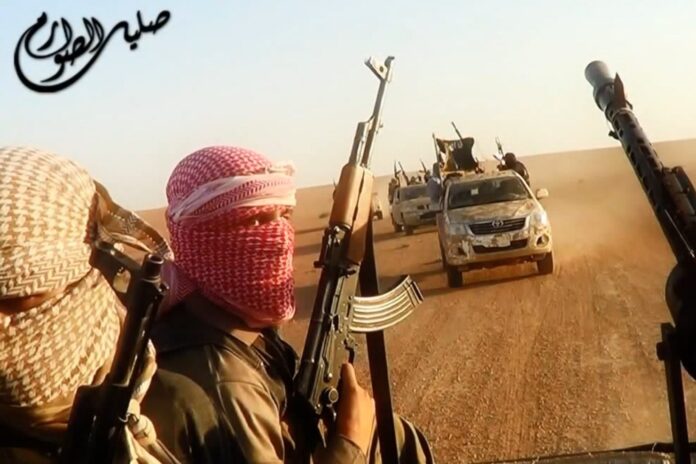The world is helplessly watching Iraq’s disintegration and the birth of a newly minted jihadist state as the Islamic State in Iraq and the Levant is on its way to set up a de facto sovereignty over a major chunk of Iraq.
The rise of Sunni militancy and the ensuing chaos in Iraq has caused international alarm. Until a few days ago, it was incomprehensible that a motley band of religious fanatics could pose as the single biggest military challenge for the West in Iraq.
Firstpost quoted Nickolay Mladenov, the UN envoy to Baghdad as saying, “Iraq faces the biggest threat to its sovereignty and territorial integrity in years.”
Following the ouster of Iraqi President Saddam Hussein and the installation of a Shia-majority government, the US withdrew in 2011 after a bloody and costly intervention.
With the Sunnis intentionally sidelined, the US was well aware that Iraq was slowly sliding into the pit of simmering sectarianism.
The withdrawal of US forces created a vacuum. The Sunni tribesmen suffered under Prime Minister Nouri al-Maliki, and the West conveniently ignored the wrongs done to the Sunnis, turning Iraq into a Sunni-Shiite war zone.
Sunnis retaliated under the banner of ISIL (also referred to as ISIS in some media); they reportedly control large parts of northern Iraq and have vowed to seize Baghdad from the Shias.
Now a resolution of the crisis is untenable. With Maliki adamant about not addressing the Sunni resentment, Iraq is a deeply divided nation between the Shias, Sunnis and the Kurds.
The only option seems the breakup of Iraq and the birth of Sunni autonomous region.
What’s more, the explosive rise of the Sunni insurgency could scramble alliances in the Middle East along Shia-Sunni lines.
With Iran already supporting the Iraqi Shias, Saudi Arabia and other Sunni nations could be funding militias to defend the Sunni pride.
Daniel Bymen, in his Slate opinion piece “The State of Terror,” wrote:
“The territory already under its (ISIS’) control is larger than Israel, and it is not some barren desert: It includes oilfields, electrical grids, prisons, small manufacturing centers, and the weapon depots abandoned by the Iraqi military, including arms provided by the United States. When ISIS fighters conquered Mosul, they seized the central bank—and its reported $425 million. By comparison, al-Qaida’s budget before 9/11 was about $30 million—and we called it rich.”
Let’s not forget that what is happening is much more complicated than a religious or a sectarian conflict —the violence impacts the country’s vast oil production.
According to the Telegraph, “Iraq’s biggest oil refinery, Baiji, has been shut down and its foreign staff evacuated, refinery officials said on Tuesday, adding that local staff remain in place and the military is still in control of the facility.”
If oil production is hit, the localized conflict would definitely involve global military effort. While US boots may not be an option, drones would certainly be used.
The use of drones implies US efforts to curb ISIL’s influence, which is more likely to simmer anti-US sentiments. That means unaccounted drone-induced deaths leading to more Sunni youths joining the ranks of militants.
As the macabre events unfold and the situation worsens in the Iraq, it would be naive to hope for peace and stability in the Middle East if sincere efforts are not made to govern Iraq in a non-sectarian manner.
The world needs to set a mechanism rolling that could address the legitimate grievances of the Shia, Sunni and Kurdish communities.
It is pertinent to highlight UN Secretary General Ban Ki-moon’s quote to Voice of America on Iraq’s worsening situation:
“What is important at this time is that the Iraqi government should have one state, whether it is a Sunni or Shiite or Kurds,” Ban said. “They should be able to harmoniously live together, respecting and upholding human rights and values of the United Nations.”
Abdul Kuddus is a Delhi based passionate blogger and works at Tata Consultancy Services. He is a learning solutions consultant by profession and has been writing for different websites.

